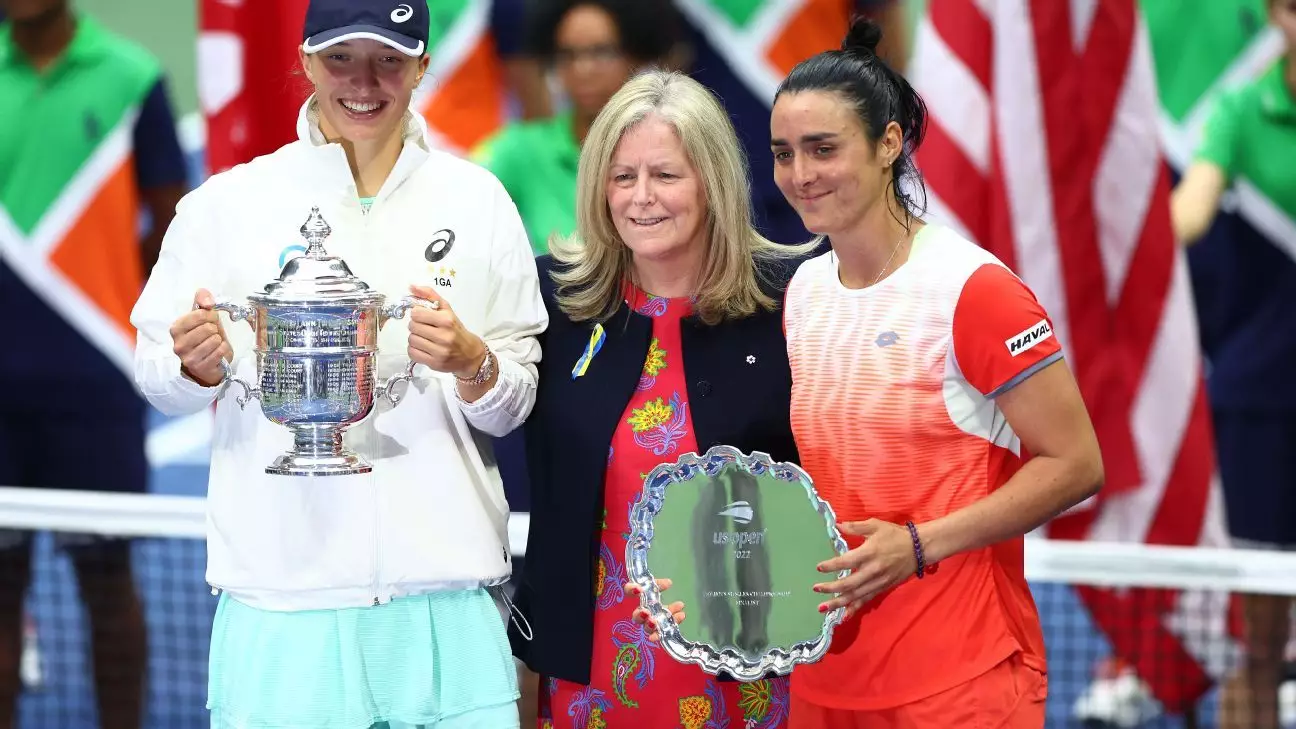Stacey Allaster’s tenure as the chief executive of professional tennis and tournament director for the US Open marks a significant chapter in the history of the United States Tennis Association (USTA). As the first woman to hold these prestigious positions, Allaster’s imminent departure from these roles after the 2025 US Open represents an ongoing evolution in both her career and the landscape of professional tennis. This decision comes after decades of dedicated service in a sport where her impact has reverberated far beyond the confines of the court.
Allaster reflects on her 38-year journey with profound gratitude, stating, “After 38 years of working in professional tennis, my cup is overflowing.” This sentiment encapsulates not only her personal achievements but also the evolution of women’s roles in sports. As Serena Williams has eloquently put it, sometimes the questions about life’s purpose shift with age, prompting deeper introspection about legacy and fulfillment. In this light, Allaster’s decision to step back could be perceived as a combination of personal reassessment and a broader recognition of how she has contributed to the sport she loves.
Although Allaster is stepping away from her primary responsibilities, she is not severing ties with the USTA. Instead, she will continue to lend her expertise as an advisor during the transitional phase and play a role in identifying her successor. This commitment to mentorship underscores her dedication to the sport, ensuring that her legacy of progress in gender equity and professional tennis continues. Additionally, her new roles on boards such as the Women’s Sports Foundation and the Canadian Olympic Committee indicate a desire to influence broader changes in sports and advocacy for women’s rights.
The path that Allaster has carved is particularly relevant in the context of current conversations around female representation in leadership roles. Her journey embodies the possibility of equitable gender representation in a traditionally male-dominated domain. Celebrated for securing equal prize money at Wimbledon and the French Open during her time as CEO of the Women’s Tennis Association, she is a testament to the shifts taking place in the sporting world and the importance of combating inequality.
Allaster’s contributions extend beyond immediate gains in prize money and audience engagement. Her role has paved the way for aspiring female leaders within sports, serving as an inspiration and a proof of possibility for many young athletes and professionals. “I’ve tried to demonstrate with confidence that a working professional mom can successfully run and lead the No. 1 professional sport for women worldwide,” she said, illustrating her dedication to not only her job but also to setting an example for women everywhere.
Under her guidance, the US Open has reached unprecedented milestones, including record attendance and the highest prize money awarded in tennis history. This accomplishment showcases her ability to navigate complex challenges, such as the strains imposed by the COVID-19 pandemic during the 2020 US Open, which was the first large-scale sporting event during that turbulent period. Her resilience and strategic foresight not only salvaged the event but also set it on a path to burgeoning success.
Throughout her career, Allaster has garnered a myriad of honors, including being named a Companion of the Order of Canada, highlighting her contributions to gender equality and women’s sports advocacy. This recognition stands as a testament to the enduring impact of her work, a legacy that will undoubtedly inspire future generations. The gratitude expressed by her peers, including USTA’s CEO Lew Sherr, stresses the multi-faceted ways in which Allaster has shaped both American and global tennis.
In her own words, the transition isn’t merely an ending but a continuation of a lifelong journey. As Allaster prepares for her next ventures, the tennis community and beyond will watch closely, anticipating her continued influence in advocating for equality and excellence in sports. Her departure is not a retreat but rather an advancement towards new frontiers, paving the way for a brighter, more inclusive future in tennis and athletics as a whole.


Leave a Reply